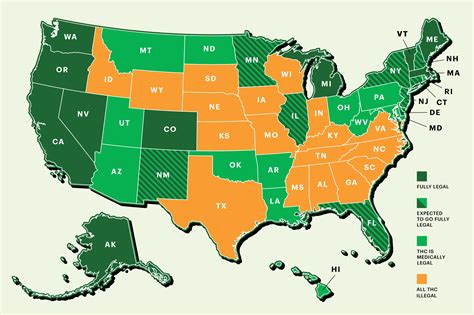The legal status of marijuana in the United States is a complex and evolving issue. While marijuana has been outlawed at the federal level since 1937, a wave of liberalization policies has swept across various states over the past five decades. This has led to a significant policy gap between federal restrictions and state-level legalization efforts.
As of March 1, 2023, 21 states, along with the District of Columbia, Guam, and the Northern Mariana Islands, have enacted laws permitting the recreational use of marijuana. This represents a major shift from the early 1900s when cannabis was widely utilized for therapeutic purposes, to the mid-20th century when synthetic painkillers emerged and cannabis-related violence garnered media attention, culminating in its federal prohibition.
Despite federal laws prohibiting its use and distribution, more than half of all U.S. states, along with the District of Columbia, Guam, Puerto Rico, and the U.S. Virgin Islands, have legalized marijuana for medical purposes. Additionally, several states have approved its use for non-medical adult purposes, further highlighting the federal-state legal disparity.
Marijuana is classified as a Schedule I substance under the Controlled Substances Act. This classification indicates a high potential for abuse and no currently accepted medical use, maintaining its strictly illegal status under federal law. However, the development of state-legal medical and recreational marijuana industries continues to challenge this federal stance.
The disparities between federal and state law have been mitigated by certain factors, allowing the state-legal marijuana industry to operate. Nevertheless, the industry generally functions in violation of the Controlled Substances Act (CSA). It’s worth noting that no state has reversed its legalization, whether medical or recreational, since California first legalized medical marijuana in 1996.
In summary, while the federal government maintains a strict prohibition on marijuana, state laws have increasingly moved towards legalization for both medical and recreational use, creating a complex legal landscape that continues to evolve.
CRS Reports
PMC
CDC
PMC
CRS Reports
CRS Reports
CRS Reports
DEA.gov
CRS Reports
